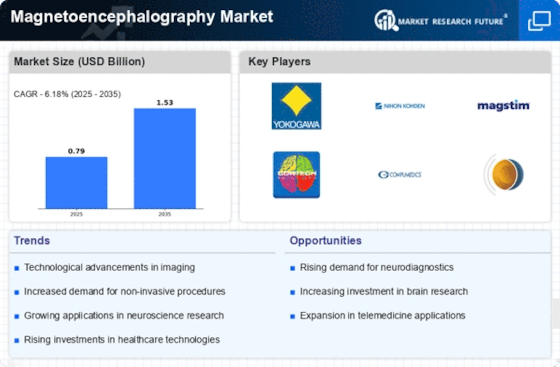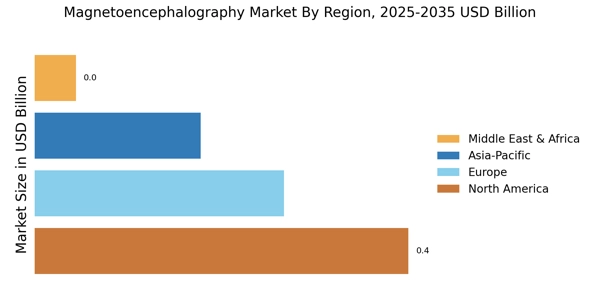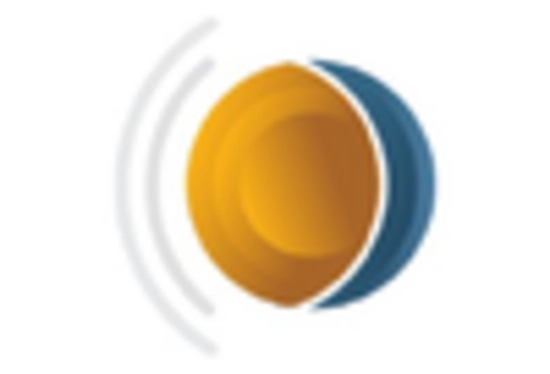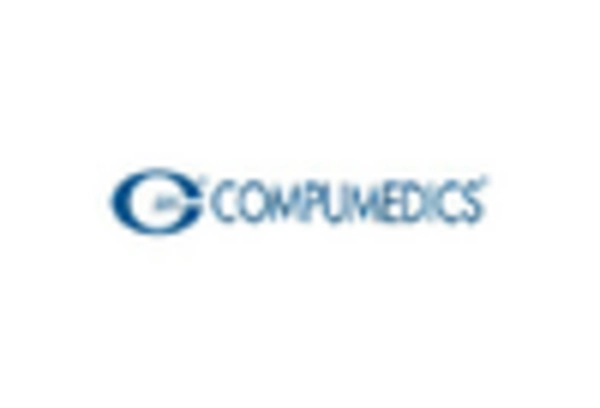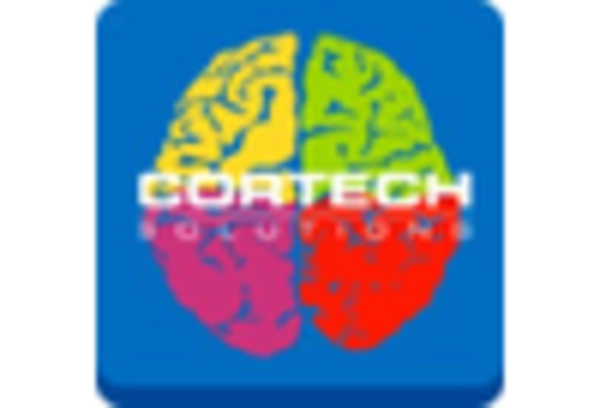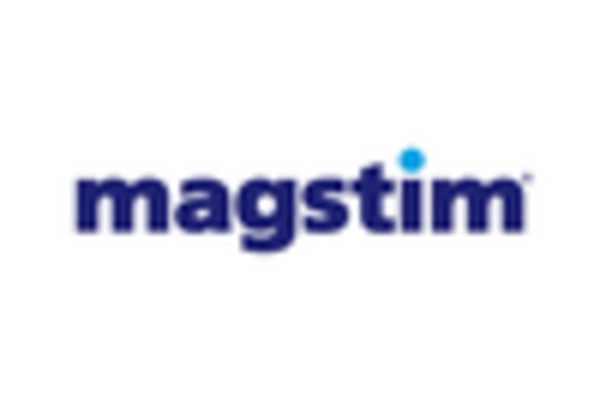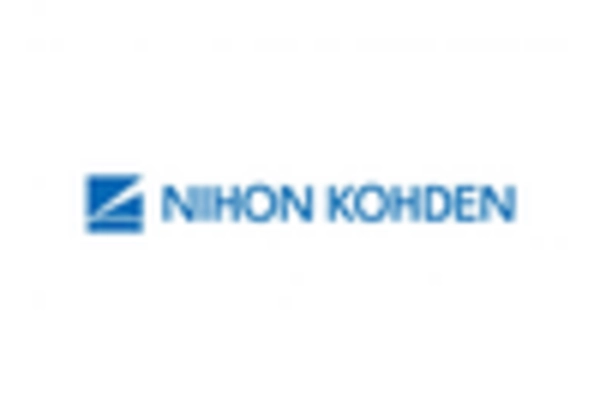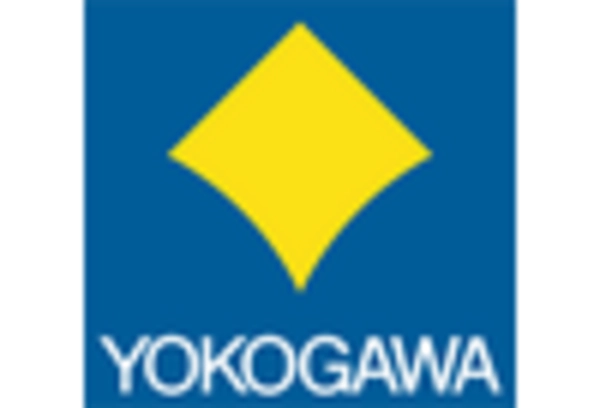Rising Incidence of Neurological Disorders
The Magnetoencephalography Market is significantly influenced by the rising incidence of neurological disorders, including epilepsy, Alzheimer's disease, and multiple sclerosis. As the global population ages, the prevalence of these conditions is expected to increase, driving demand for effective diagnostic tools. MEG offers unique advantages in the non-invasive assessment of brain function, making it a preferred choice among clinicians. According to recent estimates, the number of individuals diagnosed with epilepsy alone is projected to reach over 70 million by 2025, underscoring the urgent need for advanced diagnostic solutions. This growing patient population is likely to propel the Magnetoencephalography Market, as healthcare providers seek to implement more sophisticated diagnostic methodologies.
Increased Focus on Research and Development
The Magnetoencephalography Market is benefiting from an increased focus on research and development (R&D) initiatives aimed at enhancing the understanding of brain function. Academic institutions and research organizations are investing significantly in MEG technology to explore its applications in cognitive neuroscience, psychology, and neurology. This investment is expected to yield new insights into brain disorders and cognitive processes, further validating the utility of MEG in clinical settings. As a result, the market is likely to see a rise in collaborations between technology developers and research institutions, fostering innovation and expanding the range of applications for MEG systems. The R&D expenditure in this sector is anticipated to grow, contributing to the overall market expansion.
Technological Innovations in Magnetoencephalography
The Magnetoencephalography Market is experiencing a surge in technological innovations that enhance the precision and efficiency of brain activity monitoring. Advanced sensor technologies, such as superconducting quantum interference devices (SQUIDs), are being integrated into MEG systems, allowing for improved spatial and temporal resolution. This evolution in technology is likely to attract more research institutions and healthcare facilities, thereby expanding the market. Furthermore, the introduction of portable MEG systems is anticipated to facilitate broader access to these diagnostic tools, particularly in remote or underserved areas. As a result, the market is projected to grow at a compound annual growth rate (CAGR) of approximately 8% over the next five years, reflecting the increasing adoption of these advanced technologies.
Growing Awareness of Non-Invasive Diagnostic Techniques
The Magnetoencephalography Market is witnessing a growing awareness of non-invasive diagnostic techniques among healthcare professionals and patients alike. As the medical community increasingly recognizes the benefits of non-invasive procedures, there is a shift towards adopting technologies like MEG for brain imaging and functional assessment. This trend is likely to be fueled by the desire to minimize patient discomfort and reduce the risks associated with invasive procedures. Educational campaigns and professional training programs are also contributing to this awareness, promoting the advantages of MEG in clinical practice. Consequently, the demand for non-invasive diagnostic tools is expected to rise, positively impacting the Magnetoencephalography Market.
Integration of Artificial Intelligence in Magnetoencephalography
The Magnetoencephalography Market is on the cusp of transformation with the integration of artificial intelligence (AI) technologies. AI algorithms are being developed to analyze MEG data more efficiently, enabling faster and more accurate interpretations of brain activity. This integration not only enhances diagnostic capabilities but also supports personalized treatment plans for patients with neurological disorders. As healthcare systems increasingly adopt AI-driven solutions, the demand for advanced MEG systems is likely to grow. Furthermore, the potential for AI to assist in predictive analytics and real-time monitoring could revolutionize the way brain disorders are managed. This trend is expected to drive significant growth in the Magnetoencephalography Market in the coming years.


